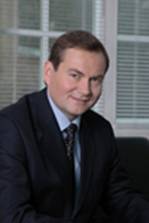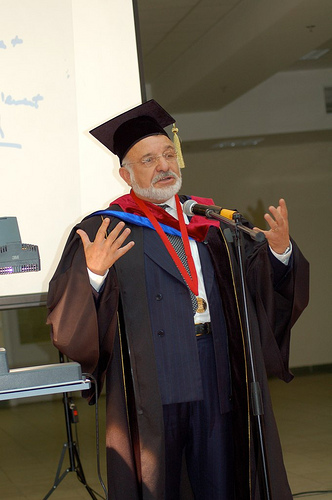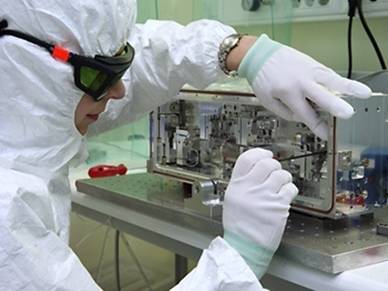
THE VOICE OF INTERNATIONAL LITHUANIA
|
VilNews has its own Google archive! Type a word in the above search box to find any article.
You can also follow us on Facebook. We have two different pages. Click to open and join.
|
Education research & development
The French daily “Le Monde” has recently published an article about Lithuania’s world-leading laser manufacturers. According to “Le Monde”, Lithuania is the biggest exporter of femtosecond lasers in the world. The Lithuanian laser technologies producer UAB “Šviesos konversija” only holds 80% of the global market of femtosecond lasers. A country of 3.5 million people, Lithuania, has about 15 laser producers, employing about 300 laser specialists, half of which are engineers and doctors of sciences. Lithuania’s laser sector grows about 15-20 % annually, which is twice faster than the whole economy of the country. The Lithuanian laser production is demanded by the best scientific laboratories in Europe and the US.
Read more...- Bookmark :
- Digg
- del.icio.us
- Stumbleupon
- Redit it

Text: Virginijus Kundrotas
Dean of Adizes Graduate School (USA),
Vice president of Adizes Institute (USA), Europe
President of BMDA – Baltic Management Development Association, Lithuania,
CEEMAN Vice President
What should a well established educational institution look like or how should it be managed?
There are opinions that educational institutions are so different to compared to business or non-governmental organisations that they should also need to be managed differently. Even if the difference specifically exists, the basic principles of management remain the same. Let’s look at it through the consulting methodology of Dr. Ichak Adizes (USA), an internationally known management thinker and implementer.
The methodology of Dr. Adizes is based on the functional approach to management. Following that approach, any well-managed organisation or educational institution should perform four basic roles.
Functional – systematic – proactive - organic
First, it should be functional, meaning that it should provide what the client needs. In this case, the Institution will be effective in the short run.
Second, it needs to be systematic, which requires to administrating, systematizing, and executing tasks in systemic way. I noticed that in Lithuania (but also in a whole Central and East Europe) often we are lacking a systemic approach towards the issues to be solved and that requires us to reinvent the wheel each time we need one, wasting the time and energy. If we perform this role, this will provide the efficiency in the short run.
Then, the organisation must be proactive, adapting to the new trends, grabbing the available opportunities in the market and forecasting where the market is going. This gives a chance to be effective in a long-term perspective.
And finally, it needs to be organic, integrating and creating a climate of cooperation. You need to ensure that all parts of your organization fit together and are interchangeable, which calls for long-term efficiency.
Let’s look at how these four aspects of successful organizations apply to the everyday activity of a Higher education institution. Such as program design, teaching, research activities, teaching materials preparation and relationship with the community.
I have noticed that there are a various traditions in Lithuania and the whole of Central and Eastern Europe when it comes to program design. Some of the programs are created based on heritage. This is especially true of large and bureaucratic institutions. They design their programs on the basis of what they have, not on the basis of what the clients need. Their goal is to satisfy the professors, who are working in their institutions, by allowing them to teach their courses not paying attention to are those courses needed in the program. Fortunately, institutions of this kind are becoming increasingly rarer and rarer.
Another trend that I have noticed is some of our institutions simply copy programs from more their experienced Western counterparts. There is nothing wrong in learning from more experienced colleagues or those who have achieved something already, but a copy-and-paste approach is never appropriate, especially if there is no deep understanding of the imported program. Like in the previous example, fortunately, there are less and less such institutions.
If you want to find out whether a higher education institution is well positioned to respond to customer needs, find out if it has executive development programs. These programs create a good opportunity to be close to the customers and study their needs and to offer what they desire.
One more suggestion is to look at the governance structure of the institution. Do they have Boards and external members in those Boards, letting have a closer connection with the business community and society at large? Do they have an advisory board from the local and international community? This helps enormously in the design of the relevant programs.
It is also a good indicator if faculty members participate in consulting activities because that work gives them an opportunity to understand real life issues and find out what corporate clients need.
Speaking about teaching, I often see the contradiction between traditional teaching and interactive teaching. In Central and Eastern Europe we still have a lot of cases when traditional teaching methods are used. There is nothing wrong with that, especially if the professor is good and manages to approach the audience in 3 different information perception ways, relying on visual, audio and imaginative stimuli. However, this type of teaching is not enough. Students should be involved in group-work and different types of interaction because this is much more efficient learning. The professor should not just preach but give the students an opportunity for discussion and participation in the learning process. This is where the most effective learning comes from.

Dr. Ichak Adizes
Higher Education institutions often are forced to conduct research, which gives them recognition among their academic peers. Such research is often seen as the main driver for innovation. Even if it is partially a true, still I saw a too many examples when HEI starts focusing on the research which is too advanced and has only long term perspective (we will come back to this important factor later on) forgetting about the applied research, which is the need of the local or international community now. They do not perform the research, which could be useful today for a practical world. As one of the well known management thinkers and implementers prof. Peter Lorange (former President of IMD Lousagne and current President of Lorange Institute in Switzerland) pointed out in January 2011 at an international conference in Lyon, “the innovation is real innovation only if it is understood by others, by your clients”. If it is too advanced and not understandable – it does not satisfy current client needs and therefore can not be effective in short term perspective.
In order to be so, the goal of HEI is to “speak understandable research language”.
As for the teaching material, it should support the learning process. Participating in various international accreditation site visits I have seen a lot of examples when students are overloaded with teaching materials. Huge reading lists are drawn up but in reality the students do not read all that material at all. It is better to focus on a few good textbooks andt give the students a real opportunity to read them and learn something from them in depth. Additional optional readings are welcomed to be included as well.
And the last point in order to keep effectiveness in short term perspective is to share your benefits with the community. It is extremely important to let society know what are you doing, what kind of programs you are offering and to communicate those programs by providing some elements of them to the community for free in order to create awareness, etc.
These remarks have been done towards the need to be functional. Now let’s look to the need be systematic.
Concerning program design, I have seen many ad hoc programs in their program portfolio at various institutions in Central and Eastern Europe. This means that those schools do not develop their programs on the basis of their strategic strengths. Every school has some strengths and weaknesses as well as its own unique strategic development strategy. But instead of setting up programs that reflects their strengths, they often use an ad hoc approach trying to have what their neighbours have or what they feel it is fashionable to have. The existing laws sometimes also encourage such mediocre behaviour. They call that “innovations”, but in reality it is only a fake try to do something really unique. Of course, that does not work well.
In order to be efficient with respect to teaching, I would say that you have to be sustainable in your approach, rather than fall prey to some temporary fashion. Use new methods but do not overuse them. One of the examples could be given in relation with using too many slides in professor’s presentations. I have heard of a professor who used 200 slides in an hour presentation. The participants could not follow the speech and thoughts of that professor. Other wrong examples are to use case studies for people who do not have practical experience and using e-learning for people who do not have the challenge of participation and distance, etc.
In relationship with teaching materials the important issue is to provide those materials at the time when they are needed by the students. In our part of the world, resources can be a big challenge. I am talking about books and the Internet. Price is still an issue. However, I think that if you know what you need, there is always a possibility to obtain it. We have perfect examples in CEE business schools of how to prepare and present those materials extremely efficiently.
How creativeness and innovation could apply for program design, teaching and materials preparation? Being proactive (and due to that effective in long run) involves an ability to adapt to shifting trends and opportunities. It is not enough to discover what the client needs today. We should be able to predict what the client will need tomorrow. The financial crisis demonstrated this in a very vivid way. Enrolment numbers have fallen at many institutions. Part of the problem is that companies have cut their budgets dedicated for learning. However, there is another reason: most institutions of Higher Education were unable to adapt to the rapidly changing situation. They were not fast enough. They did not manage to offer a portfolio for the particular moment. Yet, after the initial shock, many HEI started getting out of their stupor and came up with innovative programs. It is possible to do that if you are proactive.
Talking about the teaching, I have also noticed another shortcoming of management education in Central and Eastern Europe: a lack of a high number of good professors. The same people teach on undergraduate, graduate and executive programs. They use the same methods across the board. That does not work. When you have experienced executives, you can immediately start a discussion. But when your audience consists of undergrads, you need to provide a stronger foundation first. Of course, interactive learning methods should be present.
Concerning the teaching materials, it is not a good strategy to develop some excellent stuff and use it for ever. You need to be constantly involved in case writing and development of new material. Proactiveness means adapting to new trends and opportunities and being permanently curious instead of finally satisfied.
Finally, in order to be organic (and due to that efficient in long term perspective), you need to use a team approach instead of a single-innovator approach. What I mean by that is that even if you have a fantastic professor who is very innovative and capable of developing a good program single-handedly, it is preferable to involve others in that process in order to achieve sustainability and interchange ability. Also, it is great to use prominent scholars but you also must involve other faculty and guest speakers in the same program. That will give everybody an opportunity to understand what is going on and create a good team spirit.
Also, this should apply in setting up research activities in HEI. The teams of researchers, working together in the particular expertise area are much more efficient than even very advanced individuals in long term perspective. They also create long lasting bases for the research traditions in the HE institutions.
The same thing is related towards creating teaching materials together enabling the creation the culture of mutual trust and respect within an organisation.
Involvement of local community (business, but also community at large) in study program development, teaching (as guest lecturers), research development (case studies creation), study materials development (providing practical examples, annual reports, etc.), advising the management of institution, etc. is assuring efficiency of operations in long term perspective.
I believe that Higher Education Institutions that use this approach from the four perspectives that I mentioned will be successful in designing the demanded programs, will be teaching them properly, will do the research, which benefit not only the authors of their creation, will be able to create the relevant and useful teaching materials and have great connections with society.
They are then going to be effective and efficient in short and long term perspective!
And I sincerely wish this to them!
- Bookmark :
- Digg
- del.icio.us
- Stumbleupon
- Redit it
VilNews e-magazine is published in Vilnius, Lithuania. Editor-in-Chief: Mr. Aage Myhre. Inquires to the editors: editor@VilNews.com.
Code of Ethics: See Section 2 – about VilNews. VilNews is not responsible for content on external links/web pages.
HOW TO ADVERTISE IN VILNEWS.
All content is copyrighted © 2011. UAB ‘VilNews’.

 Click on the buttons to open and read each of VilNews' 18 sub-sections
Click on the buttons to open and read each of VilNews' 18 sub-sections 













.jpg)



